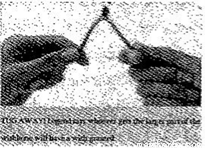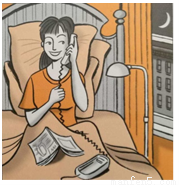题目内容
阅读下面短文,从短文后各题所给的四个选项(A、B、C和D)中选出可以填人空白处的最佳选项,并在答题卡上将该项涂黑。
When you are living a fully-scheduled life, every minute counts. No matter how many ways you divide your ________, there’s never enough time in a day to catch up.
Six years ago, I was ________ with a care-free, stop-and-smell-the-roses type of ________. When I needed to rush out, she was taking her sweet ________ picking out a purse and a shining crown. When I needed to have a ________ 1unch, she'd stop to speak to the elderly woman who looked like her grandma. Whenever my child caused me to deviate(偏离) from my main ________, I thought to myself, we don’t have time for this. ________, the two words I most commonly spoke to my little lover of life were: "________!"
Then one day, things ________. We'd just picked up my older daughter from kindergarten and were getting out of the car. Seeing her little sister not going fast enough for her liking, my older daughter said, "You are so ________." When the older one crossed her own arms, it dawned on me that her annoyed look ________— that of mine. I saw the damage my hurried existence was doing to ________ of my children.
Though my ________ to slow down was made almost three years ago. Living at a slower pace still takes great effort. My younger daughter is my living ________ of why I must keep trying. In fact, she reminded me once again the other day. When I thought my little child was going to eat the last ________ of an ice cream, she held out a spoonful of it. "I saved the last for you," she said. At that moment, I ________ I'd just got the deal of a lifetime. I gave my child a little time, and unexpectedly, ________, she reminded me that things taste ________ and love comes easier when you stop ________ through life.
Pausing to delight in the simple joys of daily life is the only way to truly live. Trust me, I learned from the world's born ________ in joyful living.
1.A. attentionB. memoryC. loveD. experience
2.A. boredB. blessedC. contentD. patient
3.A. sisterB. grandmaC. sonD. daughter
4.A. timeB. ice creamC. stepD. lunch
5.A. bigB. quickC. nutritiousD. joyful
6.A. goalB. responsibilityC. scheduleD. interest
7.A. ConsequentlyB. FranklyC. SurprisinglyD. Unusually
8.A. Cheer upB. Pull upC. Shut upD. Hurry up
9.A. improvedB. changedC. appearedD. worsened
10.A. sillyB. excitedC. carefulD. slow
11.A. silencedB. contradictedC. mirroredD. encouraged
12.A. bothB. allC. someD. neither
13.A. demandB. offerC. promiseD. mistake
14.A. reminderB. memoryC. imageD. example
15.A. halfB. biteC. cupD. piece
16.A. wonderedB. realizedC. recognizedD. valued
17.A. in conclusionB. in short
C. in returnD. in fact
18.A. hotterB. softerC. sourerD. sweeter
19.A. rushingB. goingC. gettingD. surviving
20.A. scientistB. magicianC. expertD. designer
 世纪百通期末金卷系列答案
世纪百通期末金卷系列答案


